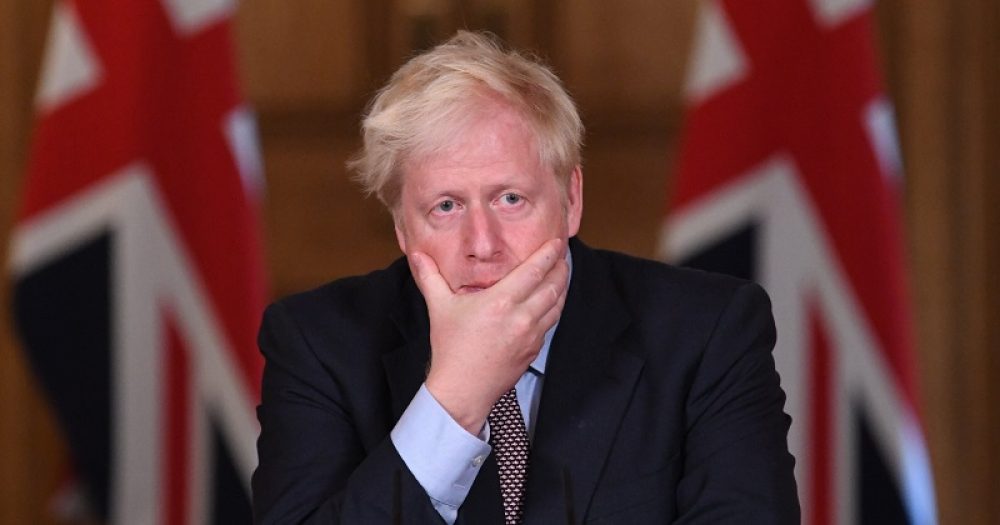The government wants to see exam year groups prioritised for return if a full school reopening on March 8 is not possible, Schools Week understands.
Ministers are hoping that scientific advice will support the return of all year groups, sources familiar with discussions have said. However, if there are still concerns, the government is understood to favour the return of exam pupils first. Primaries are also likely to be a priority, following calls from a senior Public Health England figure for their return.
Boris Johnson told Parliament on Wednesday that he hoped it would be “safe to begin the reopening of schools from Monday March 8”.
However, this is dependent on the government reaching its target of vaccinating the four most vulnerable groups of people by February 15.
The original target of reopening after February half term was “not possible”, the prime minister said, adding that we “do not yet have enough data to know exactly how soon it will be safe to reopen our society and economy”.
Johnson later told the Downing Street press briefing that March 8 was “the earliest that we think it is sensible to set for schools to go back”.
At the briefing, the prime minister also appeared to play down the idea of a staggered return of pupils, following speculation that an age-based or regional approach could be deployed.
“The date of March 8 is the earliest that we think it’s sensible to set for schools to go back, and obviously we hope that all schools will go back,” he said.
Government pushes back on rotas idea
But it is understood that ministers continue to push back against a third possible approach – the use of rotas. Having previously included them in its first contingency framework for schools last year, rotas were then removed when a new framework was published in November.
Proponents of the approach say it would allow pupils in all year groups to receive some face-to-face teaching, while also continuing to restrict numbers in schools.
Schools minister Nick Gibb told the Commons on Tuesday that rotas were “difficult for secondary schools to implement at the same time as providing full-time education for vulnerable children and the children of critical workers”.
“Rotas do not prioritise exam years,” he added. “We only ever restrict education as a last resort where transmission is exceptionally high, and rotas are a less effective means of reducing transmission risk than the approach set out in great detail in the contingency framework.”
Public Health England chief schools investigator Shamez Ladhani told The Times this week that there was a “strong case for primary schools to reopen once infection rates start falling and are sufficiently low to allow easing of national lockdown measures”.
“Everything we have learnt from the summer half-term and the recent autumn term indicates that they are safe to remain open,” he said.
A recent report by Ladhani based on the sKIDs Covid-19 school surveillance study conducted last June and July and in November concluded that infection rates “were low following partial and full reopening of primary schools in England”.
However, the report warned that “similar studies are needed in secondary schools…where the risk of infection, transmission and disease are likely to be different”.
More details on reopenings will be set out in the government’s “plan for leaving lockdown”, due out in mid-February. The Department for Education has said it will keep its promise to provide two weeks’ notice before reopening.
But shadow education secretary Kate Green tonight warned that it was “simply not enough to set out a date for school return with no plan to deliver”, and she called for a “a credible delivery plan from the government which includes vaccinating school staff over half term and sets out measures to help make schools Covid-secure”.
“The government must finally give parents, pupils and school staff clarity about their return to school.”








Schools are already open. There is restricted access to the physical school sites but the schools themselves are open, and full-scale teaching and learning is happening everyday. The only difference is that some students don’t have to travel each day.
This is absolutely ridiculous, as a year 11 student I feel like I am bring played. One minute exams are happening the next minute they are not and now they are happening again.what is wrong with this government? They are thinking to narrow minded. We can’t have exam this year we haven’t learnt anything, rather than wasting time on exam we should use that time to learn and catch up so we have a strong foundation next year. The only way forward is course work. This can be done at home and will reduce the workload for both teachers and students. As well as this previous assesments taken place this year should be used but we should not burden both teachers and students with more assessment and move more to coursework.
The most dynamic groups, in terms of socialising, are College & Uni students, with the former arguably less informed. I can see the argument for Primary & Junior school children returning, but for the safety of all WRITE THE YEAR 2021 OFF. (Someone has to say it out loud).
as a year 11 student, i feel that now that GCSE’S are cancelled, teachers should access year 11’s work with the work they’ve been doing online and the work they’ve been doing in school. To prevent the virus from spreading in schools it would be best to keep year 11’s home until summer to avoid the spread happening and will likely be a lot better for the pupils.
I feel that we should be prioritising Years 10 and 12 now. They are next year’s exam cohort and have missed a significant amount of learning. This time next year there’s unlikely to be any allowances for their exams.